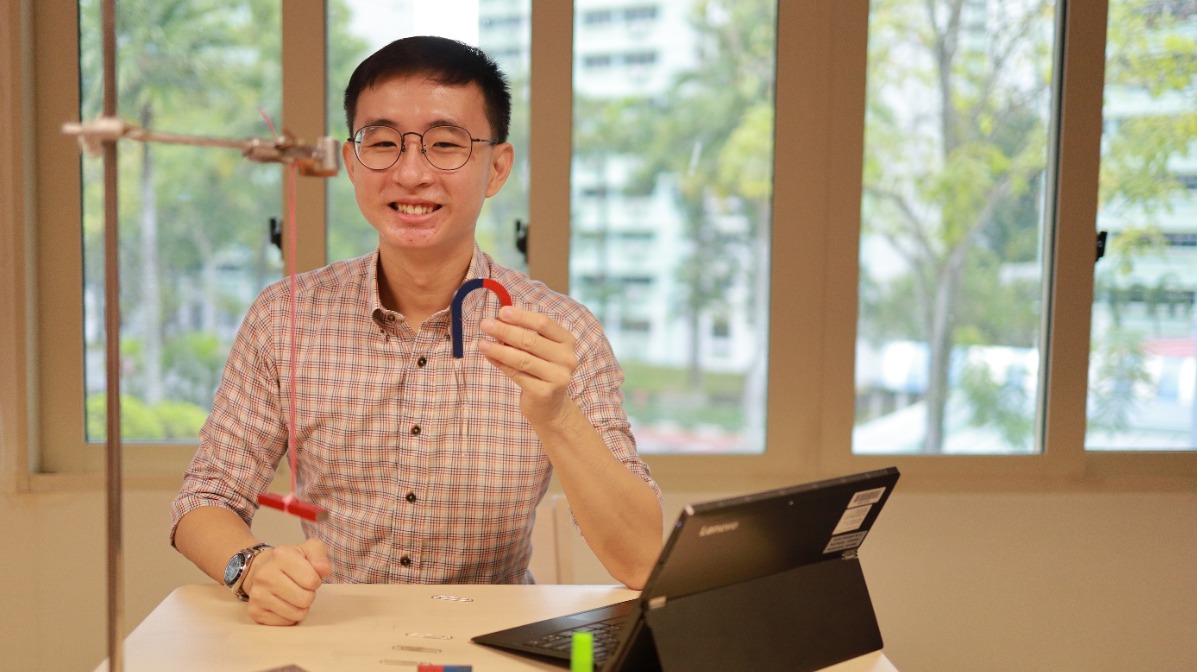Karen Lim is a 37-year veteran of ITE, but she’s always game to try new things. When ITE decided to introduce modules in Web Technology and Multimedia Applications for the Higher Nitec in Electronics Engineering course in 2001, Karen jumped on board, despite having a very small knowledge base in this.
She and her team threw themselves into learning animation, video editing and photo editing from scratch in a few months, just so they could develop the course materials. On top of that, Karen had to help set up ITE’s first multimedia laboratory at the former campus in Tampines.
With no precedent to follow, she had to search for contacts and visit numerous showrooms, spending “many weekends at Sim Lim Square chatting with vendors”.
She did all this again in 2012, when the Singapore government rolled out its master plan to install a nationwide high-speed fibre network. Again, ITE responded by introducing a new specialisation – Broadband Technology and Services – within the Nitec in Electronics course.
Karen joined the course-development team and took several courses, while still keeping up with her teaching load, to become a certified “Fibre to the Home Professional”.
After the course was launched, she also went for a two-month industrial attachment in an optical network technology company to familiarise herself with the working conditions, requirements and developments of the industry.
“I believe it is truly important to learn what is being done on the ground so I can better prepare students for work. Teaching theories in class is not enough,” she says.
This was her fourth industrial attachment, in addition to innumerable courses to keep up-to-date.
“As a teacher, I feel a greater sense of responsibility to keep abreast of the latest trends as I want my students to graduate workforce ready,” she says. “I also need to embrace digital media to be in sync with tech-savvy students who grow up communicating through technology.
“It is challenging, of course, but very exciting at the same time. Sometimes my students will give me app recommendations for teaching!”
New Knowledge, New Methods
Karen doesn’t learn want to keep learning new content — she wants to find the best way to teach it, too.
Over a decade ago, she was attached to ITE’s educational-technology department to develop e-courseware for self-directed learning.
When Ultra-Mobile Personal Computers entered the market a while later, she led a trial to equip students with the gadgets to help them learn independently, develop time-management skills, and new media literacy.
When social media gained popularity, she drove the implementation of social and digital media in lessons to encourage greater collaboration between students and lecturers. She wrote a paper on the project and presented it at the joint Self Biennial International Conference and the Educational Research Association of Singapore Conference in 2013.
Recently, she was one of 17 lecturers sent for a one-month attachment in Germany to learn about discipline specific pedagogy (DSP), which seeks to apply the most suitable teaching method for each discipline, so graduating students are as ready for work they can be. Karen is now leading the ITE’s effort to apply DSP in the Higher Nitec in Electronics Engineering course.
Connecting With Students
The reward for all her effort has been seeing her students grow and overcome challenges.
One former student who is hearing-impaired produced a beautiful video entitled “Never Give Up”. It depicted the fable of the tortoise and the hare, and drew parallels to his own struggle to succeed. It moved Karen so much, she has shown this video to all her classes since.
Another used to sleep in class but turned around after Karen spent a few weeks trying to talk to her. She found out the girl was interested in cooking and baking, and finally got through to her by asking her for recipes.
Another boy who handled stress poorly would end up in tears if he was unable to complete his lab experiments successfully. Karen made sure she was nearby to encourage him and nudge him to the next few steps when he began getting frustrated. The boy gained confidence and is now doing well in his studies.
She says, “The more years I spend teaching, the more people I realise I need to help. I do what I can as a teacher – at the end of the day, they are still their own selves. But I try my best. It gives me a sense of purpose.”
She is very close to us. She is very easy to talk to. If we have any family problems, she will tell us how to solve them. – Justin Neo Year 2 student, Nitec in Electronics (Broadband Technology & Services)



.jpg)


.jpg)